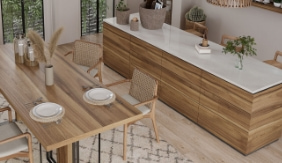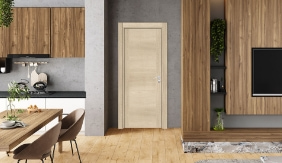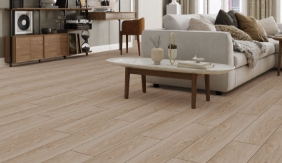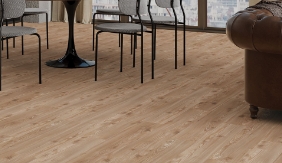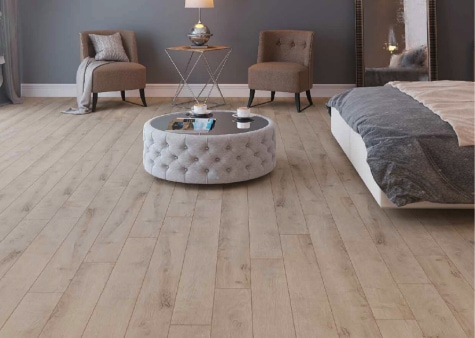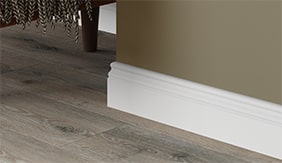Environment
We build our environmental management system in line with our goals to minimize our environmental footprint and to do our part. All our production facilities are certified to the “ISO 14001 Environment Management System Standard.” Within the scope of our environmental policy, we carry out an environmental risk assessment in all our processes and take necessary precautions against risks that we deem risky. In light of the assessments, we create action plans to determine areas for improvement after our assessments to maximize our performance.
Sustainable Forest Management
Forests are the world’s most valuable natural asset given their social and ecological functions. The most critical factor for sustaining forests is to ensure their economical, social and ecological management. Just like any other live thing, trees are born, grow, mature, age, and die. Forest maintenance works identify the trees that have reached the end of their lives and using various techniques, they are regenerated based on their species and biological structure. The raw materials used in our facilities consist of products obtained during the regeneration and maintenance works necessary for the sustainability of our forests and timber production waste. At Kastamonu Entegre, we process these products and turn them into economic value, while at the same time making sure that the forests are maintained in a healthy condition.
We are the second-largest partner of Endüstriyel Ağaç Tarımı Sanayi ve Ticaret Anonim Şirketi (ENAT), founded in 2005 to develop industrial forest plantations in Turkey. Having been pivotal for the development of the forest products industry in Turkey, ENAT ensures that an average of 300 hectares of plantation is made annually from rapidly growing tree species and that this is developed and expanded by the private sector. In addition to ensuring the better protection of forest lands, this guarantees continuous raw material supply in the forest products industry, prevention of erosion, and the reduction of CO2 emissions. Having planted 1.80 million saplings so far, ENAT has begun providing wood to the industry as of 2016.
In 2019, we planted 92,000 industrial poplar saplings on 1,100 decares of land in Plovdiv, Bulgaria, which we leased for 32 years. We look to ramp up tree planting and expand the project by making sure we have enough land to keep growing.
Wood is the main input of our production operations and, as part of our strategies to protect the balance of nature, we make sure to procure it from sustainable sources and to use the material efficiently. Since 2013, we have been manufacturing in accordance with the FSC® (FSC® C 115698). This chain certifies that any forest asset is sustainably managed and, as such, audited and approved by an independent organization, from the moment it is cut down until it is made into wood-based panels, distributed, manufactured into furniture, and delivered to the end user.
Considering the fact that wood is the primary raw material of our industry and 100 percent recyclable, we launched a significant investment in Italy in 2017. The wood-based panel industry in Italy operates on recycled materials. We purchased a particle board manufacturing facility from Gruppo Trombini and launched it into production in 2018 after completing the necessary upgrades.
The Fight Against Climate Change and Energy Management
Climate change has become a global problem with negative implications all around our planet, threatening life, biodiversity, and socio-economic systems. Armed with an awareness of our responsibilities within the scope of Climate Action, a UN Sustainable Development Goal, we work diligently on carbon and energy management.
Reducing the amount of CO2 released into the atmosphere resulting from the use of wood is one of the key indicators of our industry's contribution to the fight against climate change. There are two ways to reduce the amount of CO2 released to the atmosphere: reduce emissions or capture and store existing CO2. Wood is unique in its capacity to achieve both. Trees absorb CO2 and release O2. The average tree absorbs a metric ton of carbon dioxide per cubic meter of growth and produces 0.7 metric tons of oxygen in return. However, this only continues until the tree reaches maturity when it stops storing CO2. Dying trees, on the other hand, begin to release their previous stocks back into the atmosphere. The European Confederation of Woodworking Industries states that the sustainable management of forests and harvesting of old trees will allow stored carbon dioxide to be retained in the product. The wood-based panel industry also supports this cycle as it uses harvested wood as raw material.
Water Management
In our world where natural resources are rapidly depleting, we take all our steps with the responsibility of consuming these resources efficiently and consciously. We prioritize minimizing water consumption and the reuse of water in our manufacturing processes. In order to monitor our performance in this area, we regularly calculate our per unit water usage every year. We care about recycling wastewater to reduce the use of natural resources. The wastewater we recycle every year is equal to the water consumption of approximately 5,000 people. We continue our efforts to this end.
We treat and discharge the wastewater produced at our facilities in compliance with the relevant legislation. Our facilities are equipped with chemical and biological treatment systems, the performance of which are continuously monitored and tracked.
Energy Management
In 2014, we certified all our facilities to ISO 50001 Energy Management System to comply with the international standards in the operation and monitoring of our energy efficiency efforts for improved quality of life and sustainable production. In addition to using renewable raw materials in our manufacturing, we focus on increasing the share of renewable energy in our total consumption. We closely follow all innovations in this field and try to benefit from all opportunities.
We aim to establish solar power plants in all our manufacturing facilities by 2030 in addition to the one already in operation in Adana. The biomass power plant in Gebze transforms the waste not suitable for manufacturing or recycling into environmentally friendly electrical and thermal energy. We will replicate this initiative in our other locations. We will have completed 30 percent of these investments by the end of 2022 with a budget of $50 million. We aim to complete the remaining 70 percent within the following decade. As a result of these investments, we will be generating sufficient energy to power 260,000 households per year.
Waste Management
Our waste management system focuses on reducing waste at the source as well as sorting, collecting, storing, eliminating, and recycling as much as possible and supporting the circular economy. In the first stage, we aim to prevent waste generation. If waste generation cannot be avoided, we aim to minimize waste. This is followed by reusing waste, and if this is not possible, recycling and energy recovery. We eliminate any remaining waste that is inevitable and cannot be reused or recycled in compliance with the environmental legislation in a manner that presents no harm to human or environmental health. We organize training sessions on waste management for all our employees as part of our environmental management system.
